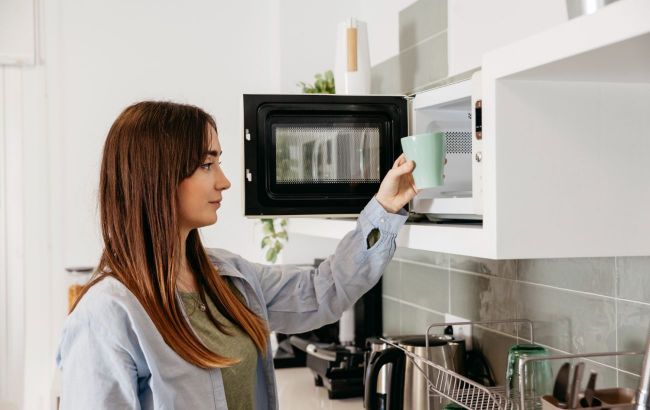Microwave myths: How your cooking method affects nutritional value
 Is it safe to reheat food in the microwave? (Photo: Freepik)
Is it safe to reheat food in the microwave? (Photo: Freepik)
Cooking in a microwave is very convenient and quick. However, there is a myth that it emits harmful radiation and kills all the nutrients in food.
HuffPost website reveals wether microwave cooking is really that bad for your health.
How microwaves work
Microwaves heat food using electromagnetic waves that cause water molecules in the food to vibrate.
Nutritionist Krutika Nanavati explains that when a microwave operates, it sends waves that change direction millions of times per second. In response, the water molecules try to align themselves with the changing waves, but ultimately, they spin and collide with each other at incredibly high speeds.
This constant movement creates friction, which generates heat. The heating occurs as the initial heat spreads throughout the food via conduction.
Do nutrients break down
All cooking methods — whether baking, boiling, frying, or using a microwave — result in some loss of nutrients.
The degree of nutrient loss depends on several factors, including cooking time, heating intensity, and the quality of the food.
Compared to other cooking methods, microwaves often better preserve essential vitamins and minerals.
In a microwave, food cooks quickly and usually requires very little water, meaning more beneficial nutrients remain in the food. This is particularly helpful for preserving heat-sensitive and water-soluble vitamins, such as B and C, which tend to break down during prolonged heating.
To maintain the quality of food and its nutritional value while reheating in the microwave, it's advisable to use a higher temperature for a shorter time.
Additionally, since microwaving does not require the addition of fats or oils for cooking, it can be a healthier option.
Is it safe to reheat leftovers multiple times
Frequent reheating can still lead to a loss of nutrients, especially heat-sensitive vitamins like C and B.
The texture of the food may also change, as repeated reheating in the microwave can cause the products to become tough.
It's best to reheat only the portion of food you need. Additionally, it's important to follow the 72-hour rule for leftovers to reduce the risk of foodborne illnesses, as bacteria can continue to multiply over time, even in the refrigerator.
If you plan to keep leftovers for more than 72 hours, it’s advisable to freeze them in an airtight container immediately after cooking to preserve them for a longer period.
What to consider when cooking in the microwave
It's essential to avoid reheating food in plastic containers, as they often have a thin coating that doesn't prevent liquids and oils from seeping through.
Instead, it's best to use glass or ceramic dishes.
This material is for informational purposes only and should not be used for medical diagnosis or self-treatment. Our goal is to provide readers with accurate information about symptoms, causes, and methods of detecting diseases. RBС-Ukraine is not responsible for any diagnoses that readers may make based on materials from the resource. We do not recommend self-treatment and advise consulting a doctor in case of any health concerns.

